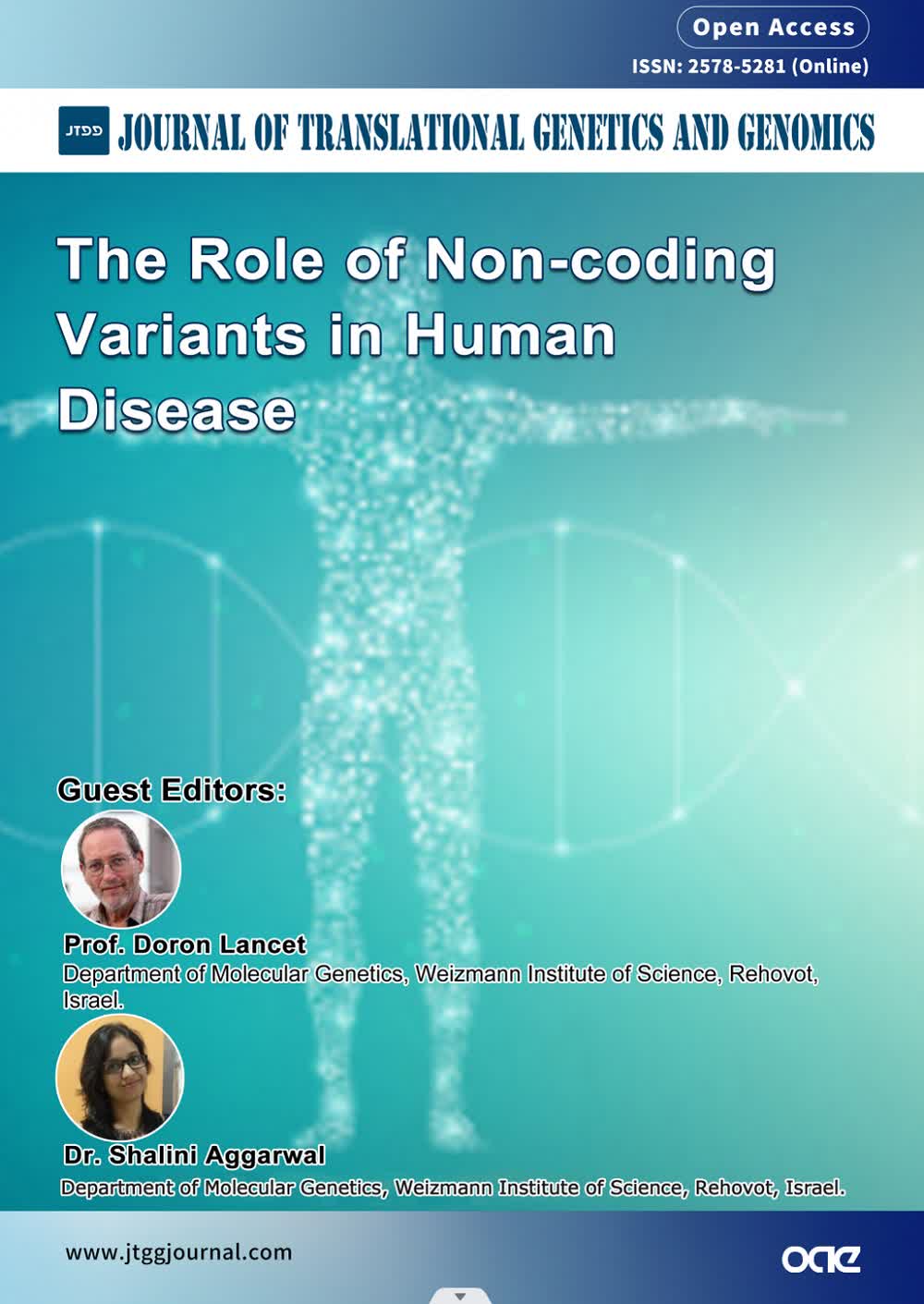
Topic: The Role of Non-coding Variants in Human Disease
A Special Issue of Journal of Translational Genetics and Genomics
ISSN 2578-5281 (Online)
Submission deadline: 31 May 2023
Guest Editors
Special Issue Introduction
1. Non-coding variants GWAS;
2. Non-coding variants cis-regulation;
3. Non-coding variants in human disease/rare disease;
4. Non-coding variants whole genome sequencing;
5. Non-coding variants identification/predicting effects;
6. Pathogenic non-coding variants;
7. Non-coding variants transcription factors;
8. Non-coding variants prioritization;
9. Non-coding variants omics techniques;
10. Non-coding variants functional annotation;
11. Application of deep learning algorithms in non-coding regions of the human genome;
etc.
Submission Deadline
Submission Information
For Author Instructions, please refer to https://www.oaepublish.com/jtgg/author_instructions
For Online Submission, please login at https://www.oaecenter.com/login?JournalId=jtgg&IssueId=jtgg2305311310
Submission Deadline: 31 May 2023
Contacts: Jixiang Zhao, Assistant Editor, jixiang.zhao@jtggjournal.com














